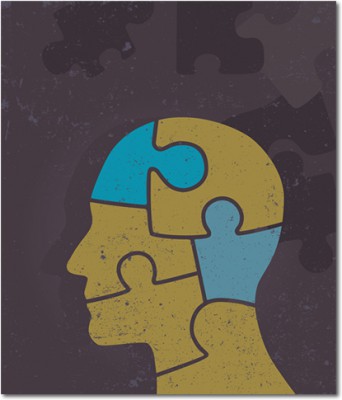The sixth leading cause of death in the United States. A disease becoming increasingly more common as other major diseases diminish. 5.4 million Americans have been affected, but still the cause and cure remain a mystery. This is the reality of Alzheimer’s.
 “Alzheimer’s is coming out a lot more now than it used to be; however, people still don’t believe they can have Alzheimer’s,” says UVA researcher Ishan Williams, PhD. “It’s also beginning to show up in people younger than 65.”
“Alzheimer’s is coming out a lot more now than it used to be; however, people still don’t believe they can have Alzheimer’s,” says UVA researcher Ishan Williams, PhD. “It’s also beginning to show up in people younger than 65.”
Alzheimer’s is a progressive brain disorder that damages and destroys brain cells. This leads to memory loss, erratic behaviors and eventually loss of body function, causing death. Since 2000, deaths from this disease have increased by 66 percent.
The Alzheimer’s Disease Research Center
Steven DeKosky, MD, vice president and dean of the School of Medicine, partnered with the University of Pittsburgh’s Alzheimer’s Disease Research Center (ADRC), where he was the director from 1994-2008, and started a satellite center here at UVA.
The center catalogs the number of patients affected by Alzheimer’s and the progression of the disease over time, Williams says. Doctors at the ADRC perform a series of neurological and psychological assessments.
Little is known about Alzheimer’s, but here’s what we do know:
- Both genetic and environmental components contribute to the disease.
- Those who are more susceptible to vascular diseases such as high cholesterol and diabetes are at a significantly higher risk of Alzheimer’s.
- African-Americans and Hispanics are two ethnic groups considered to be at high risk.
- African-Americans are two times more likely to go undiagnosed.
- Hispanics are about 1.5 times more likely to develop this disease than other ethnic groups.
Myths about Alzheimer’s
Though the cause of Alzheimer’s is still unknown, research shows some common theories are false. Silver dental fillings, aluminum and flu shots do not increase the risk of Alzheimer’s.
At medical facilities such as the ADRC, research is continuing to search for the cause and the cure.
Until then, here some warning signs to look out for in yourself and loved ones:
- Memory loss that disrupts daily life
- Challenges in planning or solving problems
- Difficulty completing familiar tasks at home, at work or at leisure
View the complete list of the warning signs from the Alzheimer’s Association.
At this time, there are no treatments known to cure, stop or even delay the progression of Alzheimer’s. But it’s always wise to take care of your body and mind. A healthy lifestyle comprised of a balanced diet, regular exercise and daily challenging brain activity are but a few inexpensive and easy steps you can take to a healthier, happier you.
Alzheimer’s Resources
Learn more about Alzheimer’s and improve your memory:
My wife is in the early stages of memory decline. I wanted to see if there are any trials now going on for which she might be considered. Ann just turned seventy and is good health other than the decline in memory which is clearly more than just normal aging that many of us seniors joke about. Pleae advise if there are any trials or possible treatment options for her at UVA.
Thank you,
Russell Burton
Mr. Burton, I am so sorry to hear about your wife. If you go to http://uvahealth.com/clinical-trials/, you can search for clinical trials related to Alzheimer’s and dementia. It looks like there are three trials total under those keywords. I hope this is helpful.